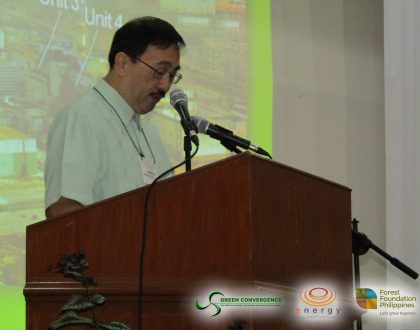Carbon Neutral Industries thru Biomass
Biomass as legally defined in Republic Act 9513 is a non-biodegradable organic material originating from naturally occurring or cultured plants, animals and microorganisms. Biomass is a cleaner source of energy compared to coal. It emits less pollution and Green House Gases (GHGs) thus helps mitigate climate change.
There are drivers and challenges in developing biomass power plants in the country. It has a higher pre-development and overall cost per megawatt. It takes longer to secure funding from financial institutions due to risk aversion standard. Feedstock supply chain is not yet well established. Though biomass technology is also not familiar yet in the country and only 250 megawatts is allocated to it, biomass has great potential in the Philippines. There are 14 hectares of alienable and disposable land for biomass plants which can yield 4,000 megawatts. An example of this is the 23.5 megawatts Biomass Power Plant in CARAGA, Mindanao.
The biomass energy project is seen to contribute to the power requirement of more than 100,000 homes. It can generate direct employment for more than 50 plant personnel, 2,000 plantation farmers and workers including the thousands of other indirect employment. An estimate of 20,000 metric tonnes of carbon dioxide can be captured per year from the plantations. Biomass is said to be not only ecofriendly but an answer to climate change. It can also create livelihood. We can likewise save on foreign exchange because it can displace up to 90% of coal imports and can remove subsidy in missionary routes being charged to all electricity consumers.
Recommended Posts

10M in 10 recognizes partners in Negros Island
January 07, 2019
Green Convergence exec bucks coal plants in Negros
December 13, 2018

